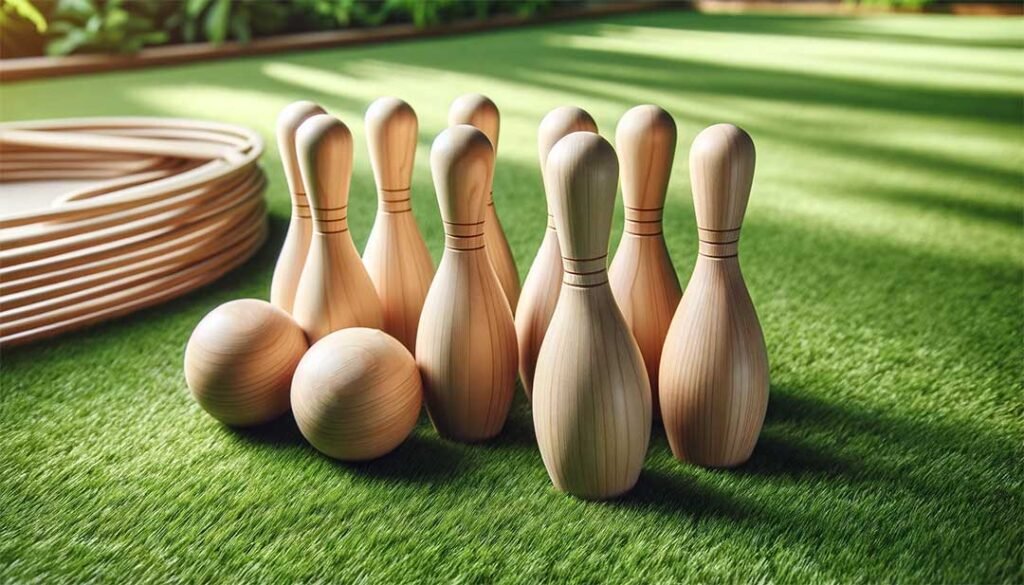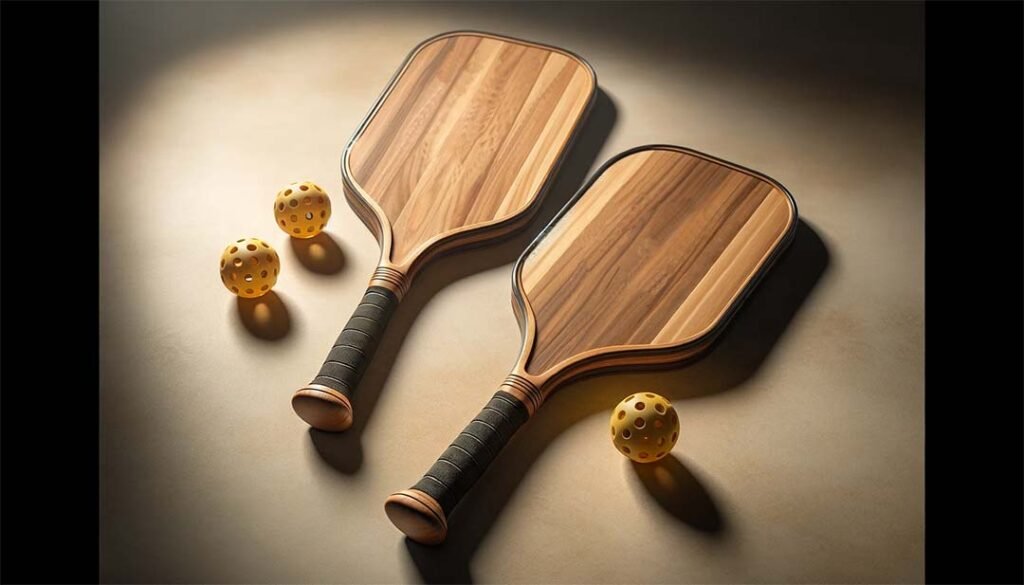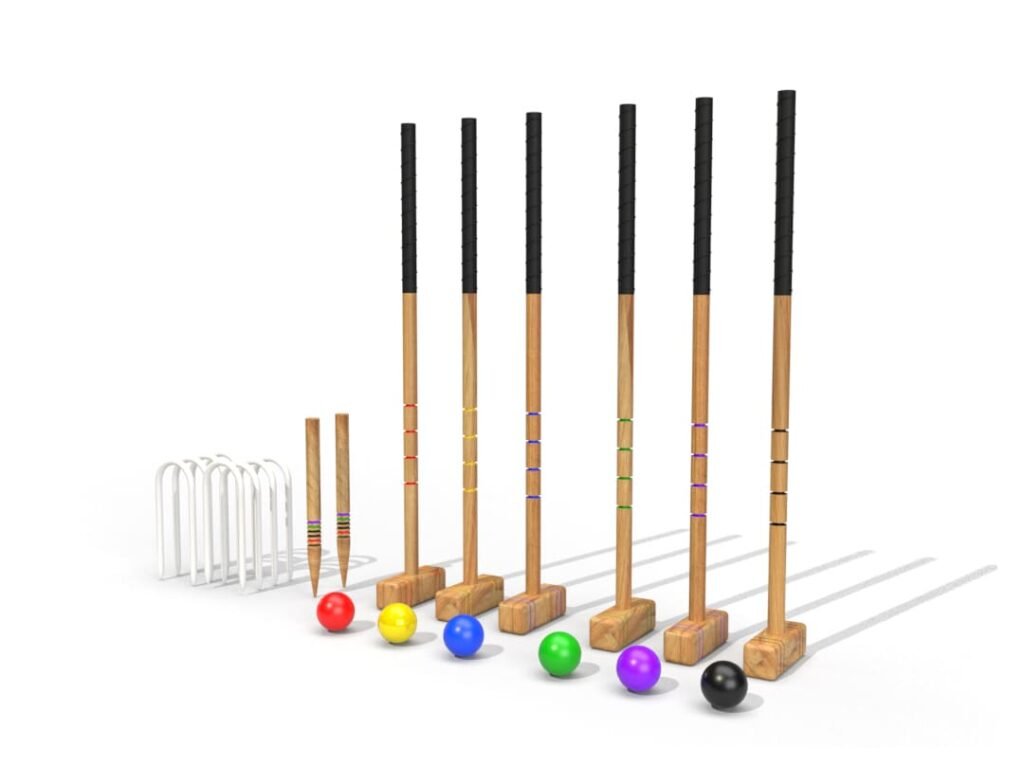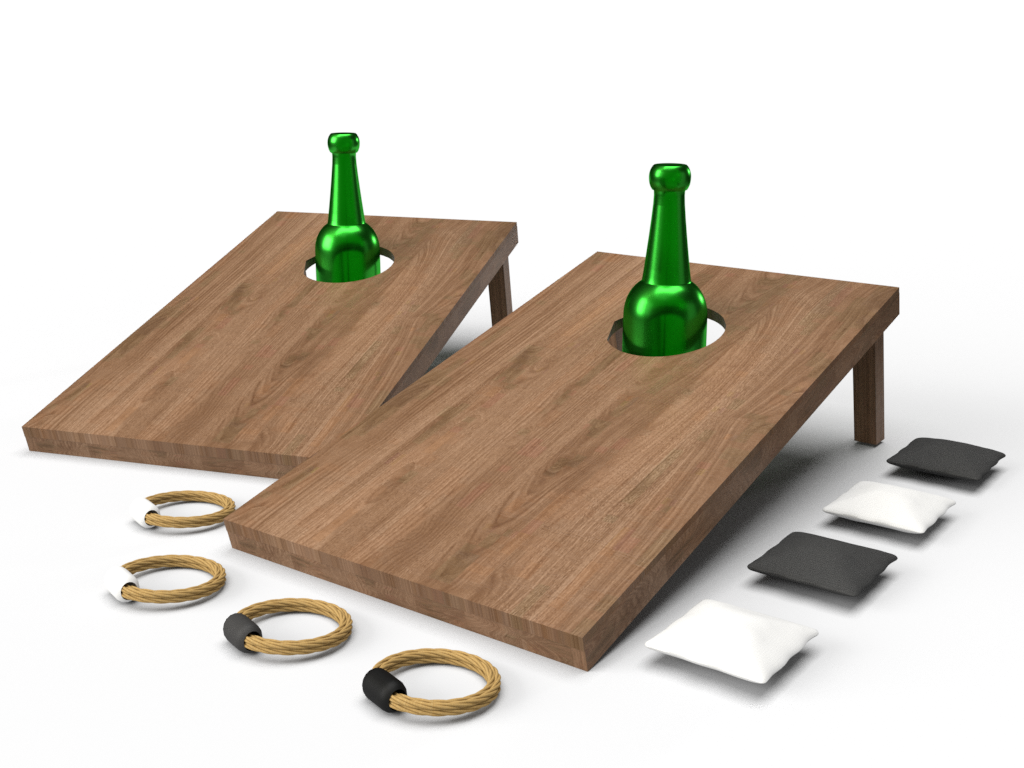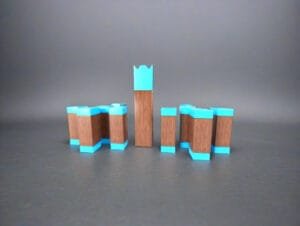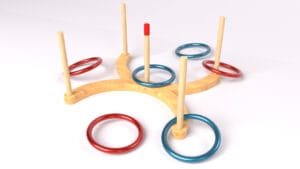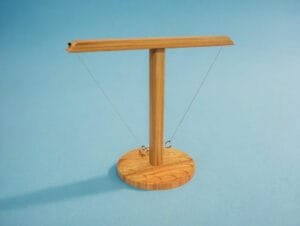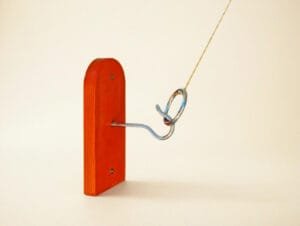Introduction
Experience the joy of backyard croquet, the perfect blend of fun, strategy, and easy-going sport for all ages. Croquet, an age-old game, has always been a highlight of summer gatherings, offering a delightful way to stay active without the exertion of more demanding sports.
Economical and universally appealing, backyard croquet is a cherished pastime, perfect for family reunions, garden parties, and casual sports enthusiasts.
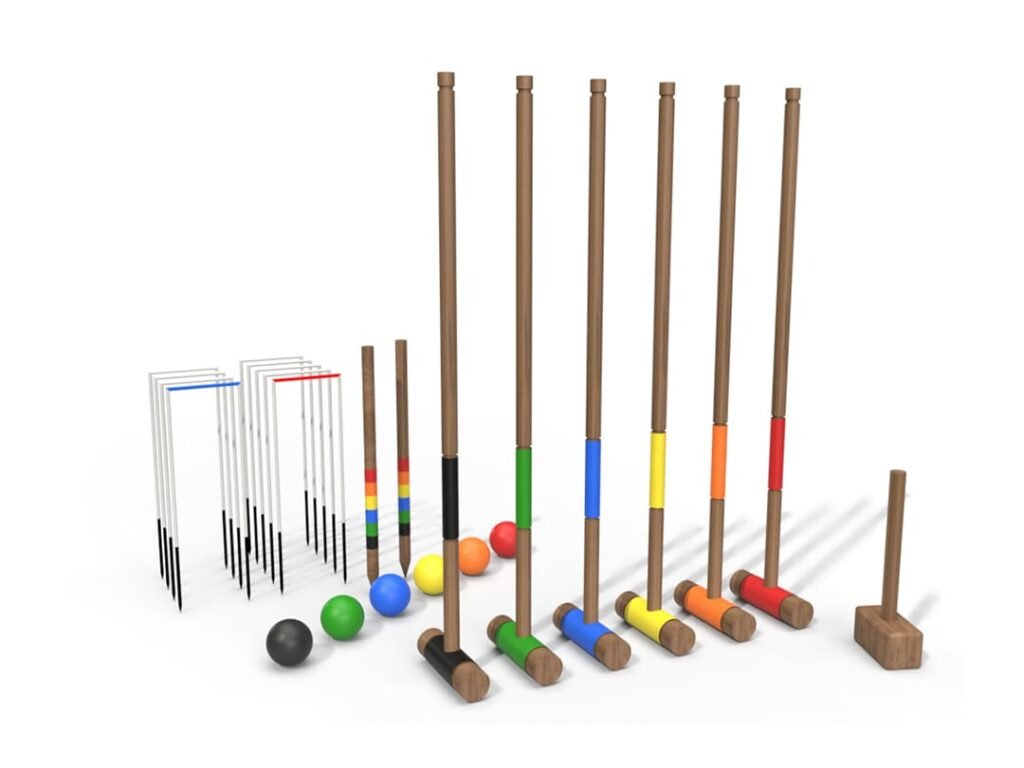
Highlights of Croquet Lawn Game
- Time-Honored Tradition: It’s a game with deep historical roots, offering a nostalgic touch to modern outdoor activities.
- Ease of Learning: One of the game’s most appealing aspects is its simplicity.
- Fun for Everyone: Croquet is a genuinely inclusive game, suitable for all ages.
- Comfortably Paced: This leisurely tempo allows for social interaction, strategy, and enjoyment of the outdoor setting.
- Flexible Court Setup: One of the great advantages of croquet is the flexibility in setting up the court.
What You Need for a Backyard Croquet Court:
- 9 Wickets: These U-shaped metal hooks are the core of your game.
- 2 Stakes: These are used to mark the beginning and end of your croquet journey.
- Croquet Balls and Mallets: Ensure you have enough for all players.
- Optional Accessories: Consider chalk, string, or flags for marking boundaries.
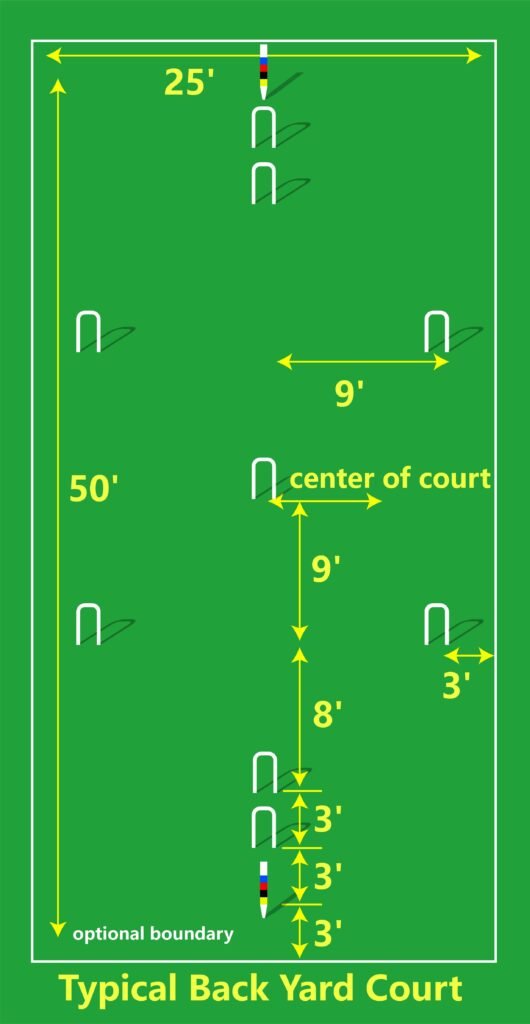
Setting Up Your Court:
- Choose the Right Space: Ideally, find a level, well-mowed grassy area. A standard court measures 100 x 50 feet, but you can scale down to fit your backyard. A popular choice is a half-size court of 50 x 25 feet.
- Stake Placement: Position the stakes 3 feet from each court end along the center line. Use a mallet for secure placement.
- Wicket Arrangement: Starting from each stake, place a pair of wickets 3 feet apart, 3 feet into the court. Then, create two diamond patterns (figure 8 layout) using the remaining wickets.
- Optional Boundary Marking: Define the court’s edges with chalk, string, flags, or additional stakes for a clear play area.
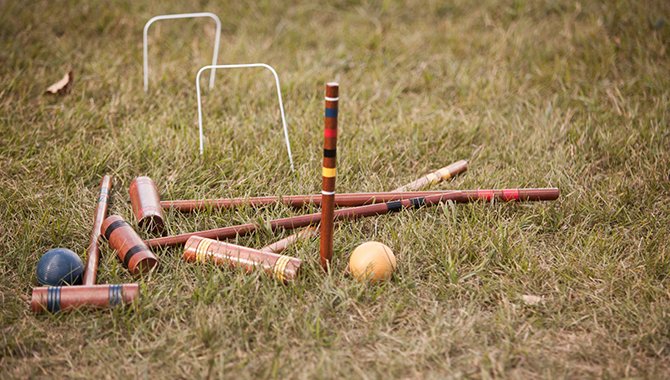
Understanding ‘Sticky Wicket’
Although the term “sticky wicket” originates from cricket, referring to a challenging situation on a wet playing surface, it has seeped into common parlance to describe tricky circumstances in various contexts.
Backyard vs. Association Croquet Courts
While backyard croquet, or 9-wicket croquet, is popular for casual play, association croquet differs in its use of a 6-wicket court and more stringent rules, catering to competitive play.
Choosing Croquet Balls: Wooden vs. Polymer
Traditionalists often prefer wooden balls for their authentic feel, but they require replacement over time due to wear. Polymer balls, commonly found in modern sets, are more durable and readily available.
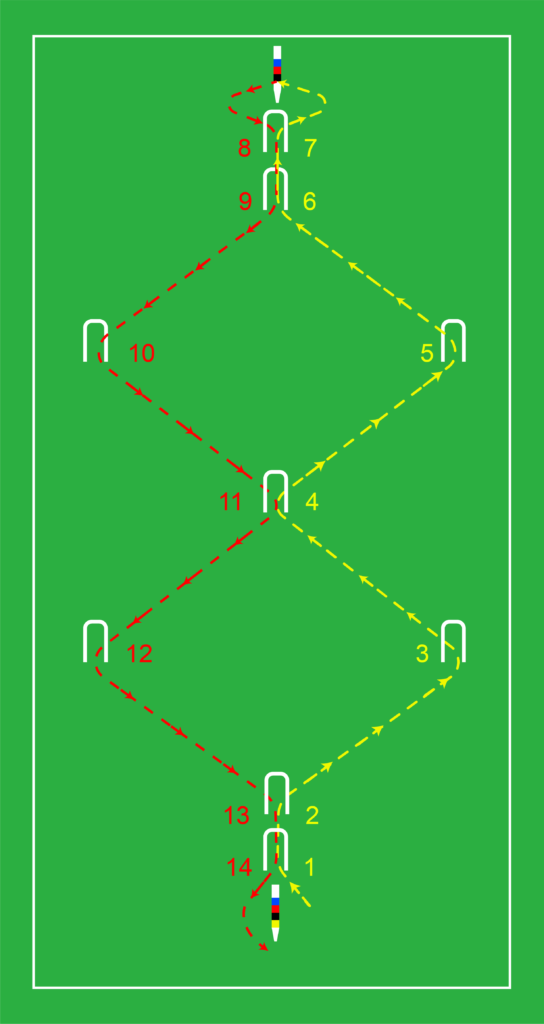
Basic Rules to Get Started:
- Objective: Be the first to navigate your ball through the course, from the starting wicket to the final stake.
- Turn Order: Play proceeds in the color sequence indicated on the stakes, with typically 2–6 players each having a distinct ball color.
- Gameplay: Players take turns striking their ball, aiming to pass through each wicket in order. Successful passage through a wicket grants an additional stroke.
- Roquet: Striking another player’s ball grants two bonus strokes, adding a strategic layer to the game.
- Boundaries: If a ball goes out of bounds, it’s placed back in the court, ending the player’s turn.
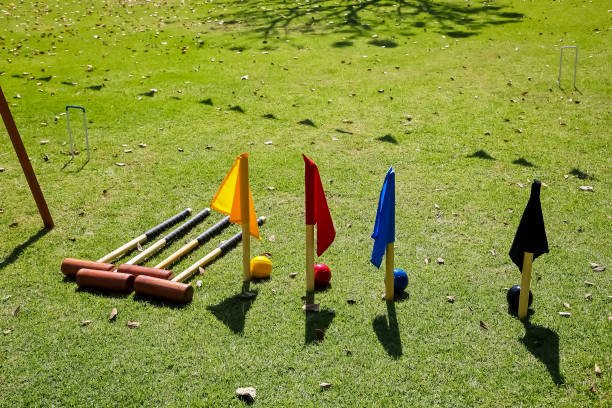
Learn More Through Video Tutorials
For visual learners, online platforms like YouTube offer instructional videos on various croquet strokes and strategies, which can be particularly helpful for beginners.
Croquet: A Rich Historical Pastime
Originating in the British Isles in the mid-19th century, croquet quickly gained popularity across English-speaking countries. Its enduring appeal lies in its simplicity and the joy of outdoor socializing.
Conclusion: Inspiring You to Play
Backyard croquet is more than just a game; it’s a way to connect with family and friends while enjoying the outdoors. With this guide, setting up your backyard croquet court will be a breeze, ensuring countless hours of fun and relaxation.



